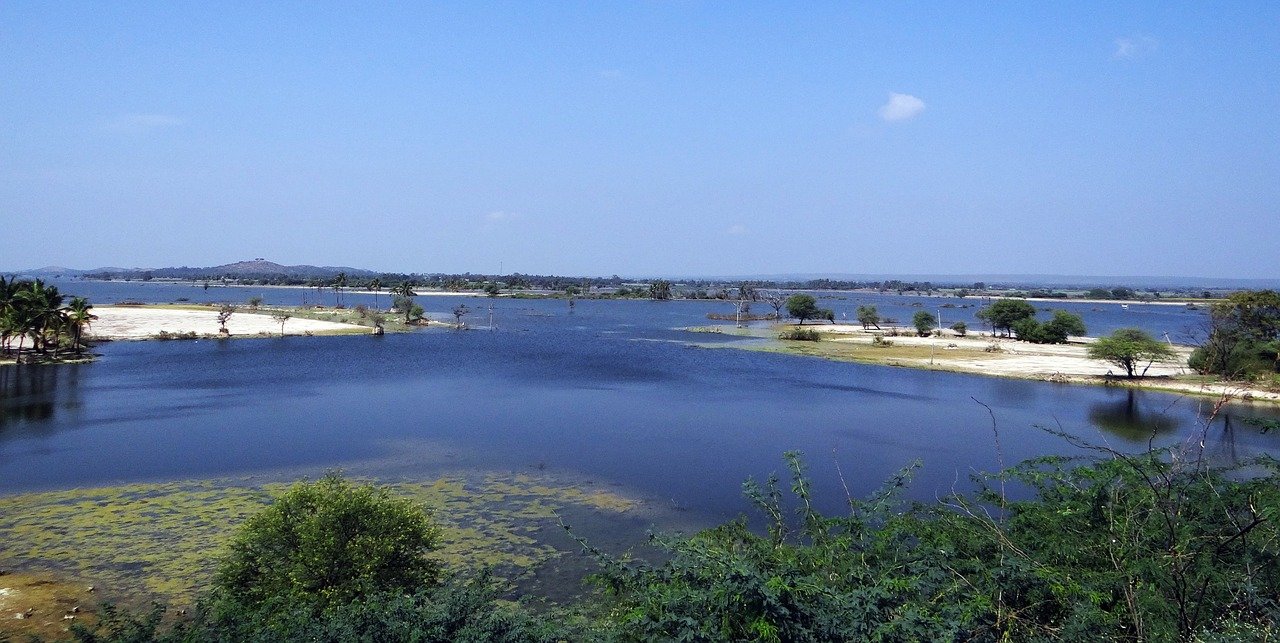Centre Brokers Key Water Pact Between Andhra Pradesh and Telangana States
The meeting marked a major step in fostering cooperative federalism in water governance and laid down a framework for future collaboration between the two states.

- Country:
- India
In a significant development towards resolving long-standing inter-state water disputes, a high-level meeting was convened today at the Ministry of Jal Shakti, bringing together Union Minister Shri C R Patil, Chief Minister of Andhra Pradesh Shri N. Chandrababu Naidu, and Chief Minister of Telangana Shri A. Revanth Reddy. The meeting, also attended by Ministers of Water Resources and senior officers from both states and the central government, focused on addressing critical water-sharing issues, particularly in the Krishna River Basin.
The meeting marked a major step in fostering cooperative federalism in water governance and laid down a framework for future collaboration between the two states.
Key Agreements Reached on Krishna River Water Management
Both Andhra Pradesh and Telangana agreed to several mutually beneficial measures to ensure the efficient, equitable, and transparent sharing of water resources in the Krishna Basin:
-
Installation of Telemetry Devices: The states committed to real-time monitoring of water flows in the Krishna Basin through the installation of telemetry devices at strategic points.
-
These devices will track and report live data on water release, inflows, and outflows.
-
The move is aimed at enhancing transparency, reducing conflicts, and enabling data-backed decision-making.
-
-
Urgent Maintenance of Srisailam Dam: Recognizing the criticality of the Srisailam Dam as a major hydro-structure in the region, both governments agreed to take immediate and coordinated action to resolve pending maintenance issues.
-
This includes strengthening the dam’s structural integrity and safety mechanisms.
-
The focus is also on ensuring continued power generation, irrigation supply, and flood management functions.
-
-
Relocation of KRMB Headquarters: It was agreed that the Krishna River Management Board (KRMB) office will be shifted to Vijayawada or Amaravati, thereby aligning the board’s physical presence with the river basin it regulates.
-
The move is expected to improve operational coordination and accessibility for stakeholders in both states.
-
Technical Committee to Study Unresolved Issues
To address pending and complex issues in a technical and unbiased manner, the Centre proposed—and both states accepted—the formation of a high-powered committee. This committee will comprise:
-
Senior officials from the Ministries of Jal Shakti and other central bodies
-
Technical experts from both states
-
Hydrological and legal advisors to evaluate and propose solutions
The committee’s mandate will include:
-
Examining historical water allocations and usage
-
Reviewing project-level and basin-level management practices
-
Proposing frameworks for equitable and sustainable water sharing
-
Suggesting dispute prevention mechanisms and institutional reforms
This collaborative mechanism aims to resolve disputes through dialogue, data, and shared technical understanding, instead of adversarial approaches.
Reinforcing Centre–State Water Governance
Union Minister Shri C R Patil reiterated the Centre’s commitment to working as a facilitator in addressing inter-state water challenges. He emphasized that sustainable water management is a shared national goal, especially in the era of climate variability, increasing urbanization, and agricultural water stress.
“The Jal Shakti Ministry remains committed to coordinating cooperative efforts between Andhra Pradesh and Telangana. We aim to ensure that water is managed as a shared public good, with fairness, efficiency, and long-term sustainability,” said Minister Patil.
Renewed Political Will and Cooperative Spirit
The presence of both Chief Ministers—Shri N. Chandrababu Naidu and Shri A. Revanth Reddy—at the dialogue table sent a strong signal of political will to resolve water-sharing issues amicably. Their joint participation and consensus reflect a maturing of inter-state relations and a shared vision for the well-being of people in the Krishna Basin.
Both leaders emphasized the need for a people-first approach, ensuring that water-sharing policies prioritize drinking water needs, agricultural irrigation, and livelihoods of millions in the drought-prone and agriculturally intensive regions of both states.
Looking Ahead: A Template for Inter-State Water Cooperation
The outcome of today’s meeting holds national significance as it sets a precedent for resolving river water disputes through institutional collaboration and scientific solutions rather than prolonged litigation or administrative stalemates.
In the coming weeks, the committee’s formation, timeline, and scope will be formalized. Implementation of the telemetry system and KRMB office relocation is also expected to begin soon.
This renewed spirit of cooperation between Andhra Pradesh and Telangana, under the guidance of the Union Ministry of Jal Shakti, is a positive milestone for Indian water governance. It underscores the importance of collaborative federalism, technology integration, and institutional dialogue in managing one of India’s most precious resources—water.
ALSO READ
(Eds: Minor edit) Both AP, Telangana agree to form Godavari, Krishna river management boards in their respective states: Telangana minister Uttam Reddy.
Urgent Repairs Ordered for Srisailam Dam Amid Rising Concerns
Both Andhra and Telangana agree on forming Godavari, Krishna river management boards: Telangana minister after meeting Jal Shakti minister.










